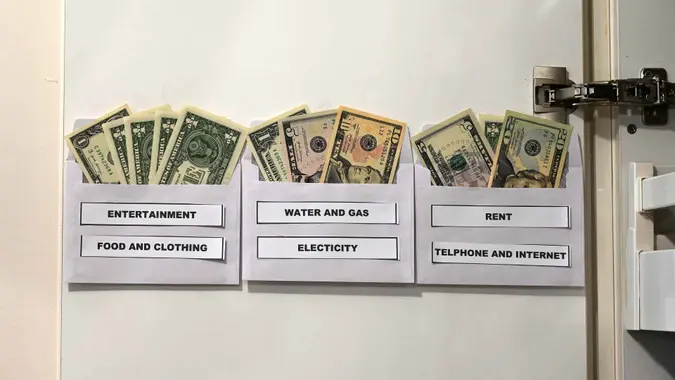Senior Healthcare: Out-of-Pocket Expenses Too Large for Medicare Beneficiaries

Commitment to Our Readers
GOBankingRates' editorial team is committed to bringing you unbiased reviews and information. We use data-driven methodologies to evaluate financial products and services - our reviews and ratings are not influenced by advertisers. You can read more about our editorial guidelines and our products and services review methodology.

20 Years
Helping You Live Richer

Reviewed
by Experts

Trusted by
Millions of Readers
Medicare doesn’t cover everything. In fact, data from The Commonwealth Fund, a nonprofit healthcare think tank, shows that Americans 65 and older were more likely to put off or go without healthcare within the past year because of cost, reported Next Avenue.
See: Decreasing US Salt Intake Could Save Country $40 Billion in Healthcare CostsFind: As Healthcare Costs Rise, Some Workers Cut Retirement Savings
The report also found that out of 18,477 adults surveyed, 20% of Americans age 65 and older had out-of-pocket health costs over $2,000 — about 7% of their income — last year.
“Americans sixty-five and older often simply can’t afford the care and they don’t get the care that they can’t afford,” Gretchen Jacobson, The Commonwealth Fund’s vice president, Medicare, explained to Next Avenue.
Jacobson also noted that the average Medicare recipient only makes about $30,000 a year. However, data from financial services firm Fidelity shows that the average 65-year-old couple may need roughly $300,000 saved for healthcare expenses in retirement.
See: Your HSA Has Benefits Beyond Healthcare — Here’s How to Put Them to WorkFind: Medical Expenses You Can Deduct From Your Taxes
According to Next Avenue, the financial stress for Medicare beneficiaries can be broken down into three categories: the types of care Medicare doesn’t cover, the 20% of bills beneficiaries must pay and premiums. The Medicare system doesn’t typically pay for long-term care and it doesn’t generally cover dental, vision or hearing costs — which can run into the hundreds or thousands of dollars.
While Medicare beneficiaries are having trouble covering these costs, delaying health care could end up being more costly in the long run. “We know that delayed care can lead to delayed diagnoses, so that can result in poor health outcomes and also higher healthcare spending down the road,” added Jacobson.
The costs of Medicare premiums and deductibles are also rising. However, beneficiaries can take advantage of Medicare open enrollment, which begins Oct. 15 and continues through Dec. 7, to explore coverage options. Not taking the time to weigh your Medicare options could be a costly mistake, as previously reported by GOBankingRates, as plans and out-of-pocket costs can change each year.
More From GOBankingRates
 Written by
Written by  Edited by
Edited by 

























